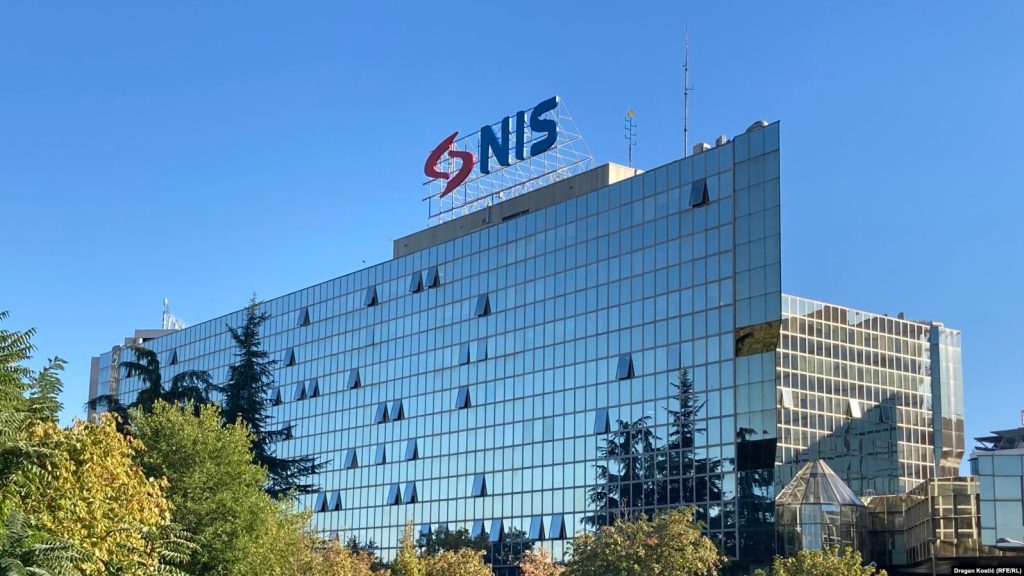
Foto credit: RFE/RL
In just one week, Serbia received two pieces of news that raised questions about its energy security – while the United States began imposing sanctions on Serbia’s oil industry because of its Russian ownership, Moscow decided to extend its gas agreement with Belgrade only until the end of the year.
This has sparked fears, despite assurances from the authorities, about whether there will be enough energy for heating.
The only company in Serbia engaged in oil exploration, production, and refining, the National Oil Company of Serbia (NIS), has been under US sanctions since October 9 due to its majority Russian ownership.
On the other hand, according to Serbian President Aleksandar Vučić, Serbia received “very disappointing news” two days later – Russia extended its gas agreement with Serbia until the end of the year and not for three years, as the Serbian authorities had expected.
Serbia is dependent on Russian gas, and most households in Serbia that use district heating use gas for heating.
Economist Ljubodrag Savić says he does not expect gas supplies to Serbia to be interrupted or the price of this energy source to rise.
“This is a tactical move by Russia, a kind of pressure on Serbia with a clear message – we are open to talks, but there will be no nationalization (of NIS),” he says.
According to Vučić’s statements on October 11, US officials suggested that Serbia nationalize NIS to avoid sanctions, but he says he rejected this.
On October 13, after meeting with a Russian delegation regarding NIS, Vučić posted on Instagram that there would be no shortage of oil and oil derivatives, nor would there be an energy crisis.
What are the reactions of officials in Serbia?
On October 13, after meeting with Gazpromneft CEO Alexander Dyukov and Russian Deputy Energy Minister Pavel Sorokin, the Serbian president said he was “pleased with the openness, constructiveness, and honesty.”
The largest stake in NIS is held by the Russian company Gazpromneft, a subsidiary of Gazprom, with 44.9 percent.
Another important owner is another company managed by Gazprom – Intelligence from St. Petersburg (11.3 percent stake). Vučić had previously said that the state would “take measures” due to sanctions against NIS and that he would present “new ideas” to the Russian side regarding the sanctioned company.
Incidentally, NIS was placed on the US sanctions list with the aim of preventing the financing of Russia’s war in Ukraine with money coming from Russian energy companies.
The statements made by the Minister of Energy regarding the sanctions against NIS were more severe.
Serbian Minister of Mining and Energy Dubravka Đedović Handanović stated on October 11 that an extraordinary meeting of the NIS board of directors had been held, but that the company’s business management plan had not been presented.
“We expected to hear what the management and the company’s plan for the next three, four, five, or six months was. Unfortunately, we did not hear this plan. We did not hear either the plan or the program. And that is worrying,” Đedović Handanović told Radio and Television Serbia.
She emphasized that the Russian partners’ plan is to wait for the war in Ukraine to end and for an agreement to be reached between Russia and the US, and that this will affect the sanctions.
“However, we are witnessing that this has not happened, that sanctions have been imposed,” she said.
The Ministry of Energy did not respond to RFE/RL’s questions about how the absence of a long-term gas contract and sanctions against NIS would affect heating in Serbia.
Srbijagas, a company involved in the transport, storage, distribution, and trading of natural gas, also did not respond to a request for comment.
“Bad news” ahead of the heating season
Bad news in the energy sector comes ahead of the start of the heating season in Serbia on October 15.
Serbian officials had expected a new three-year agreement with Russia’s Gazprom to import 2.5 billion cubic meters of gas per year. The previous ten-year contract expired in May.
However, the Russian side decided to extend the contract only until the new year.
Most households that use district heating (central heating) use gas as their energy source, according to a report by the state Energy Agency.
In response to RFE/RL, the Belgrade Power Plant stated that it mainly uses gas (98.46 percent) for heating and much less other energy sources such as coal and fuel oil.
RFE/RL asked whether sanctions against NIS would affect fuel oil supplies, given that fuel oil is derived from petroleum, but no explicit answer was given.
“Under the Energy Act, Belgrade power plants are required to maintain reserves of substitute fuel—fuel oil—for 15 average heating days. These reserves are already in place,” the response states.
Gas in Serbia is mostly used by industry (64 percent), with a smaller portion going to households and heating plants, according to a report by the Energy Agency.
Gas and fuel oil are also used to a lesser extent for electricity production in Serbia.
RFE/RL has not received a response from Srpska elektroprivreda on how the problems with NIS and the gas agreement will affect this.
Serbia ‘between two fires’
Economist Ljubodrag Savić believes that Serbia will not face a gas shortage because Serbia and Russia have the same interests.
“If Serbia respects Russian interests (in NIS), there is no possibility that the gas arrangement will not be extended after the new year,” he said.
Savić added that Russia’s interest is in selling gas, but that it has an even greater interest, which is political, in the part relating to NIS.
When it comes to the political aspect of relations with Russia, even three years after the start of the Russian invasion of Ukraine, Serbia has not agreed to Western sanctions against Moscow, despite calls and warnings from the European Union, which Serbia is seeking to join, and the United States.
Dependence on Russian energy was one of the arguments for this position.
Savić believes that the purpose of US sanctions is to reduce Russian influence in the world and target Serbia.
Since January, when NIS was placed on the list of sanctioned companies, the US has postponed the introduction of sanctions eight times, most recently to October 8.
Meanwhile, the ownership structure of NIS has changed several times, but it is still largely in the hands of Russian companies.
Vučić rejected the possibility of nationalising NIS back in January, adding that Serbia “will not participate in the seizure of Russian assets”.
On October 9, Alexander Titolo, chargé d’affaires at the US Embassy in Serbia, stated that US sanctions against NIS are not intended to harm the Serbian people, but rather to put financial pressure on Russia to end the war in Ukraine.
He said that NIS’s revenues finance the Kremlin’s war machine and that Russia could resolve this situation “tomorrow if it agreed to sell its stake in NIS at a fair price.”
On the other hand, Russian Ambassador to Belgrade Alexander Botsan-Harchenko said that Russia is aware that US sanctions against NIS are a serious problem, but will “do everything” to ensure that citizens do not feel their consequences./RSE/

 British Intelligence MI5 Warns Politicians They Are Targets of Russian and Chinese Espionage
British Intelligence MI5 Warns Politicians They Are Targets of Russian and Chinese Espionage 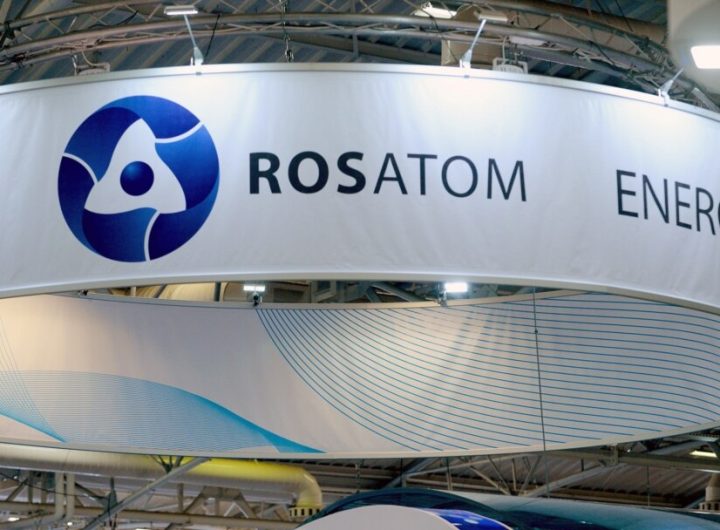 Russia offers nuclear energy to Serbia
Russia offers nuclear energy to Serbia  Brussels police officer who had access to diplomats charged with spying
Brussels police officer who had access to diplomats charged with spying 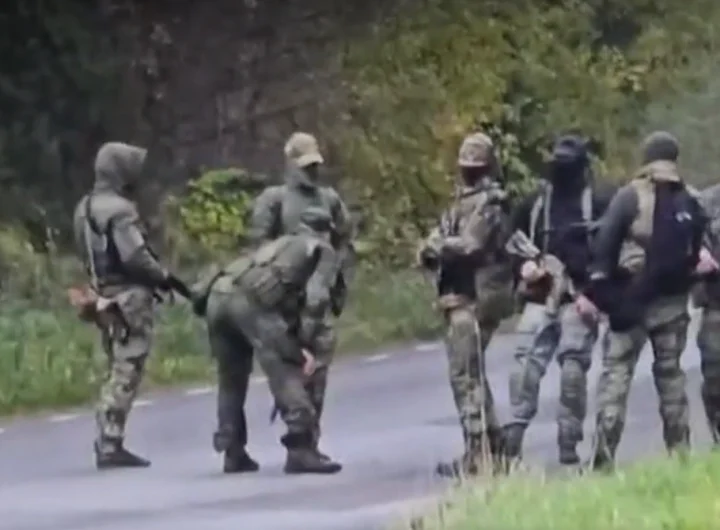 Estonia’s border guard: Armed Russian groups seen in Saatse Boot
Estonia’s border guard: Armed Russian groups seen in Saatse Boot 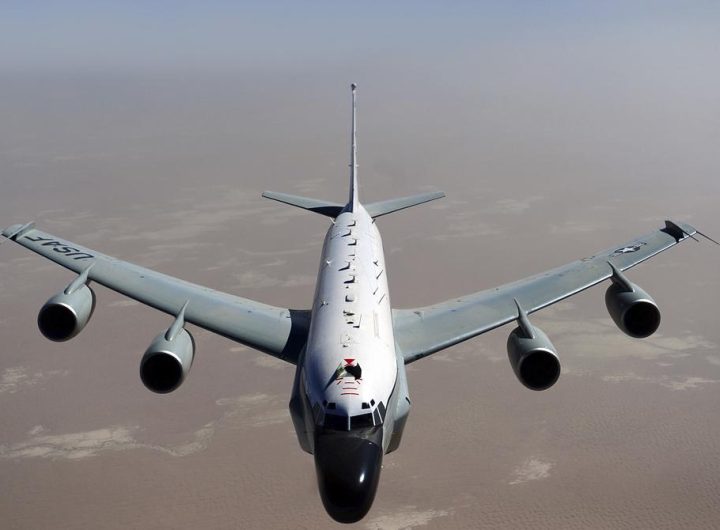 UK’s RAF surveillance aircraft flies 12-hour mission along Russian border
UK’s RAF surveillance aircraft flies 12-hour mission along Russian border 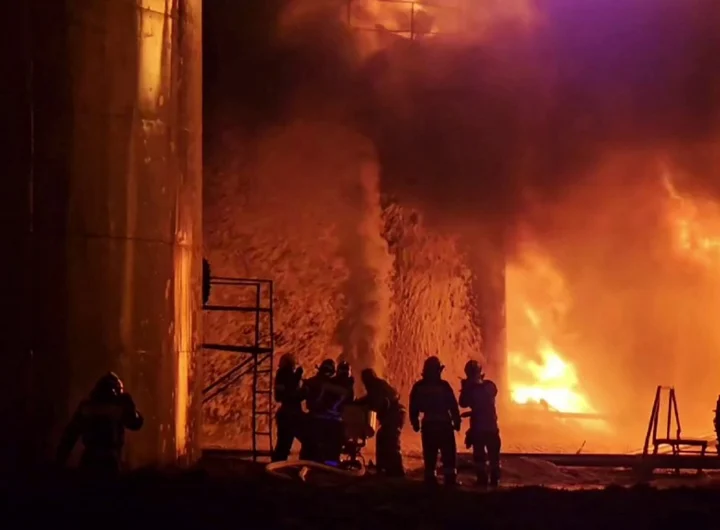 US Intel Helped Power Kyiv’s Strikes That Crippled Russian Oil – Officials
US Intel Helped Power Kyiv’s Strikes That Crippled Russian Oil – Officials